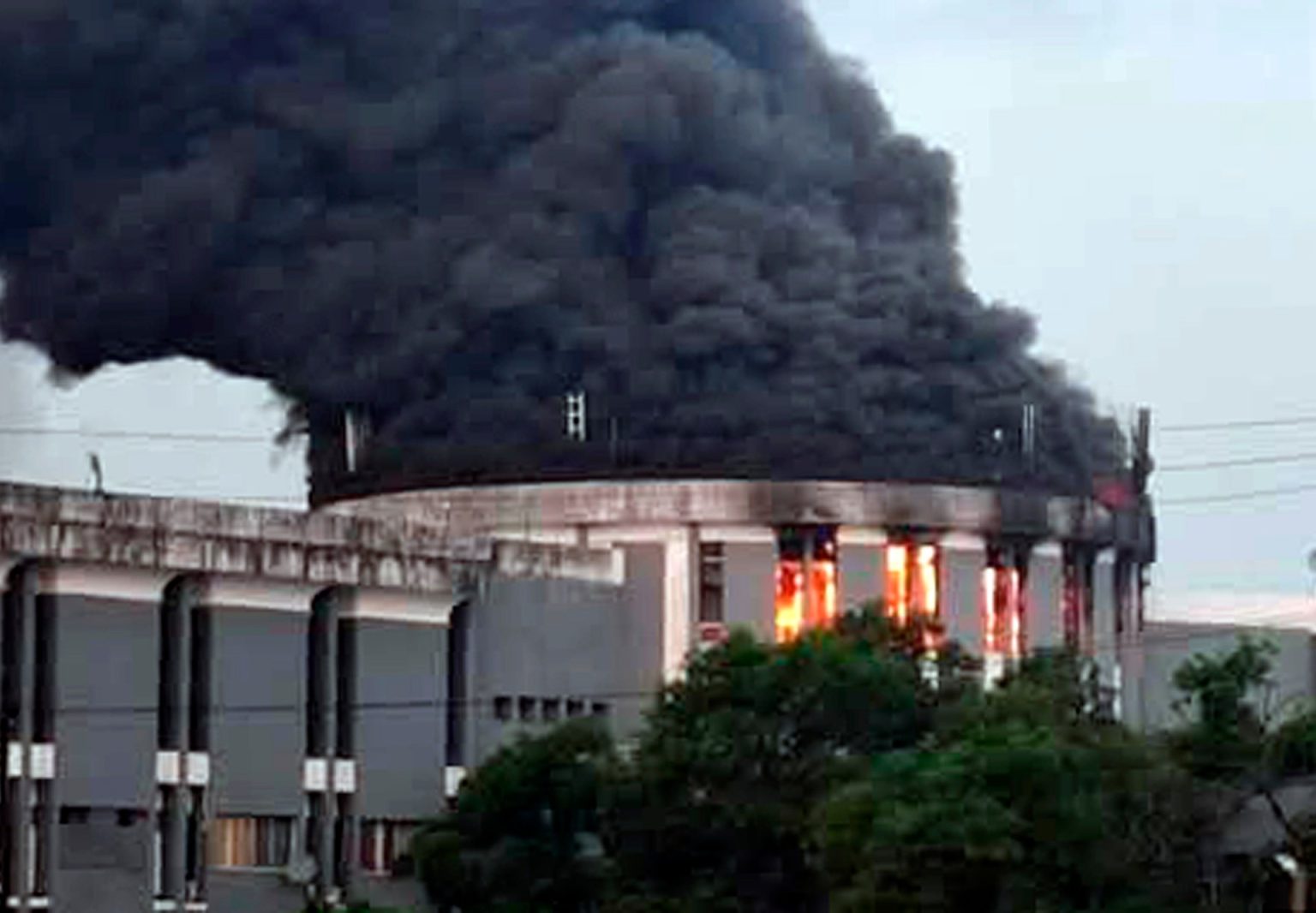The Liberian parliament building in Monrovia suffered a devastating fire on December 18th, 2023, the second such incident in just over a week. The blaze, which caused significant damage to offices and the legislative chamber, erupted a day after police used tear gas to disperse protesters demanding adherence to the rule of law in the ongoing dispute over the removal of House Speaker Jonathan Fonati Koffa. While no casualties were reported, the fire raised immediate concerns about its potential connection to the political tensions gripping the nation. President Boakai condemned the “wanton destruction” and hinted at political motivations behind the incident, further fueling speculation about the fire’s origins. Although no direct link has been established between the protests and the fire, the incident has intensified an already precarious political climate.
The fire occurred amidst a bitter legislative impasse centered around Speaker Koffa, a member of former President George Weah’s Coalition for Democratic Change (CDC) party. Accusations of budget mismanagement, corruption, and conflict of interest have been leveled against Koffa, leading to a concerted effort by a group of lawmakers, self-styled as the “majority bloc,” to oust him. This bloc, comprising members from various parties, has boycotted official parliamentary sessions and held separate meetings, electing their own speaker, Richard Koon of the Unity Party. The government initially recognized both factions but has since shifted its support to the anti-Koffa bloc, further deepening the divide. This internal struggle has effectively paralyzed the legislature, hindering its ability to perform crucial functions, including the passage of the national budget.
The political stalemate reached a boiling point with street protests demanding Koffa’s removal. The police intervention, using tear gas to disperse protesters attempting to breach restricted areas, heightened tensions and led to numerous arrests, including an aide to former President Weah. While the police have not confirmed the cause of the fire, arson has not been ruled out, and several individuals, including Speaker Koffa and legislator Frank Saah Foko, have been questioned. Foko had previously publicly threatened to burn down the parliament chambers if the legislature failed to prioritize the interests of the Liberian people. This statement, made in the context of the legislative deadlock, has become a focal point of the investigation.
The power struggle within the House of Representatives stems from allegations of financial impropriety against Koffa. Opponents claim he misused funds allocated to his office, manipulated budgets, and engaged in conflicts of interest related to his private law firm. Koffa denies these accusations, insisting that the attempts to remove him are politically motivated. While the anti-Koffa bloc claims to have enough signatures to initiate his removal, they have not reached the two-thirds majority required by Liberian law. Their boycott tactic, however, has prevented the pro-Koffa faction from achieving the necessary quorum to conduct official business, creating a legislative standstill. The Supreme Court’s intervention has failed to resolve the impasse, with its ambiguous ruling being interpreted differently by both sides, further entrenching their positions.
The implications of this legislative crisis extend far beyond the immediate power struggle. The paralysis of the parliament has stalled crucial legislative processes, including budget approval, raising concerns about the country’s governance and stability. The situation has eroded public trust in the government and fueled anxieties about a potential escalation of political tensions. Experts warn that the impasse could create a dangerous precedent, normalizing the circumvention of established legal procedures for political gain. Moreover, the fire, regardless of its cause, has become a potent symbol of the fragility of Liberia’s democratic institutions and the potential for political disputes to spill over into violence.
The ongoing investigation into the fire is critical for determining its cause and holding those responsible accountable. The outcome will significantly impact the future course of Liberian politics. The international community, including the US embassy and ECOWAS, has called for a thorough and transparent investigation. The Liberian government has pledged to bring the perpetrators to justice and offered a reward for information leading to their apprehension. While the fire service suspects the use of flammable substances, a definitive conclusion has not yet been reached. The resolution of the legislative impasse, as well as the fire investigation, will be pivotal in determining the future trajectory of Liberian democracy and its ability to address pressing national challenges. The nation stands at a crossroads, and the decisions made in the coming weeks and months will have profound consequences for its stability and progress.

